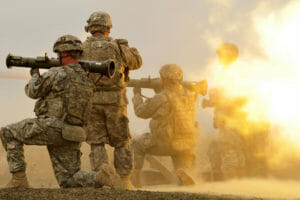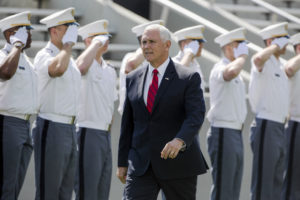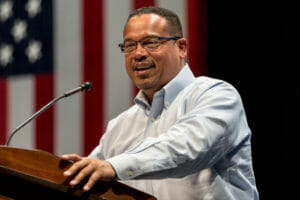Military Establishment Takes Three Whacks at Robert Gates
Robert Gates, who left his role as defense secretary this summer, has drawn criticism from members of the military establishment for allegedly lacking long-term vision, allowing military leaders to usurp civilian control and inadequately briefing and preparing the president for war. (more)
Robert Gates, who left his role as defense secretary this summer, has drawn criticism from members of the military establishment for allegedly lacking long-term vision, allowing military leaders to usurp civilian control and inadequately briefing and preparing the president for war.
The author of the attack, Bernard I. Finel, is a senior fellow at the American Security Project, a military think tank where he directs research on counterterrorism and defense policy. Articles like his are important because they allow us to see some of what the managers of America’s empire are saying to one another. –ARK
Your support matters…Armed Forces Journal:
First, a defense secretary needs to manage the department effectively. This is not simply a matter of prevailing in bureaucratic battles, but rather in charting a course for the department that balances ends and means, that ensures that long-term risks are addressed as well as managing short-term challenges. One fundamental element is allocating and managing the defense budget to ensure resources are wisely expended to address the entire portfolio of risks the U.S. military might need to engage.
Second, a secretary, as the person most directly responsible for ensuring civilian control of the military, must manage civil-military relations. This involves both ensuring that military expertise is tapped to support civilian decision-making, but also that civilian control of the military remains unchallenged. It is the secretary’s responsibility, in short, to ensure that there is a solid working relationship between the military and civilian policymakers, and also to ensure that civilian control is robust.
Third, a secretary must provide sound and balanced advice to the president about military options and operations. This requires not only an ability to be responsive to the needs and desires of the president and his staff but also an ability to interject forcefully to ensure that decisions about the use of force be made with a full appreciation of both the opportunities and limitations inherent in the use of the military instrument.
In all three of these core areas, Gates was largely ineffective.
Independent journalism is under threat and overshadowed by heavily funded mainstream media.
You can help level the playing field. Become a member.
Your tax-deductible contribution keeps us digging beneath the headlines to give you thought-provoking, investigative reporting and analysis that unearths what's really happening- without compromise.
Give today to support our courageous, independent journalists.





You need to be a supporter to comment.
There are currently no responses to this article.
Be the first to respond.